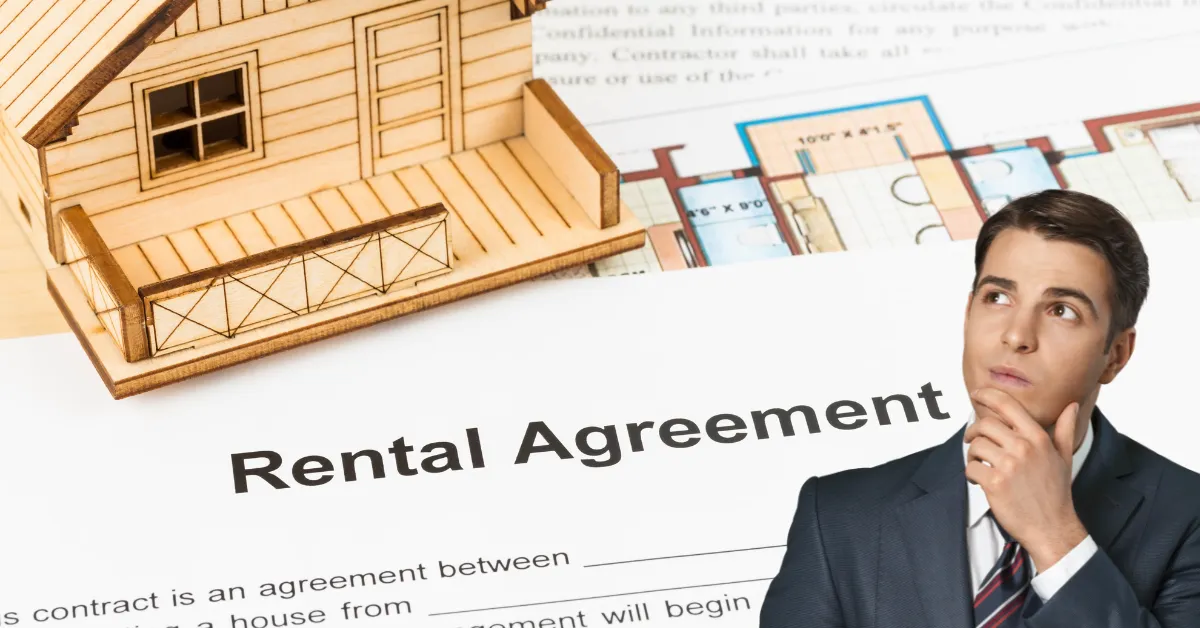A rental property is a real estate asset leased to tenants for a regular fee. It encompasses residential and commercial spaces used for generating income.
Investing in rental properties often appeals to individuals seeking steady cash flow and long-term capital appreciation. Real estate entrepreneurs and investors purchase these assets with a strategic plan to manage and expand their investment portfolios.
A rental property can vary from single-family homes to multi-unit apartment complexes, and the ownership can be either hands-on or managed through property management companies.
Deciding to buy a rental property requires thorough market research, financial analysis, and an understanding of landlord-tenant laws to ensure a profitable and legally compliant venture.
Whether you’re a first-time investor or growing your rental portfolio, recognizing the potential and challenges of owning rental property is essential for success in the property rental market.

The Essence Of Rental Property
The Essence of Rental Property has a direct impact on the economic engine of real estate. Landlords provide homes, businesses offer spaces, and investors see growth.
Understanding what falls under this category is key to tapping into this vibrant market. Let’s shed light on the core aspects of rental property.
Defining Rental Property
Rental property is any real estate that owners lease to tenants. Owners collect rent in exchange for the use of their property.
This includes a wide range of real estate, from single-family homes to commercial complexes. Rental properties are long-term investments that generate steady income streams.
Types Of Rental Assets
Different assets cater to varied needs in the rental market. Here’s a glance at the various types:
- Residential Properties: These are homes where people live, like apartments, houses, and condos.
- Commercial Properties: Spaces used for business purposes, such as offices, retail stores, and warehouses.
- Industrial Properties: Large spaces for manufacturing, storage, and distribution.
- Special Purpose: Property designed for a specific use, like schools, hospitals, or hotels.
Legal Classifications And Zoning Laws
Legal Classifications and Zoning Laws play a crucial role in the definition and operation of rental properties. These laws determine how a property can be used, whether for residential or commercial purposes.
Residential Vs. Commercial Rentals
Understanding the difference between residential and commercial rentals is essential. Residential properties are homes such as houses, apartments, and condos.
They are for living purposes. Commercial properties are places like offices, shops, and warehouses. They are for business activities.
| Residential Rentals | Commercial Rentals |
| Houses, apartments, condos | Offices, retail spaces, industrial facilities |
Understanding Zoning Restrictions
Zoning restrictions dictate property use in specific areas. They keep residential areas quiet and commercial areas bustling.
Ignoring zoning laws leads to fines and legal trouble. Always check local zoning laws before renting out a property.
- Residential zones limit businesses.
- Commercial zones focus on economic activity.
- Mixed-use zones allow for both living and business.
- Special zones are for specific needs like hospitals or schools.
Always check with the local planning department to understand the zoning for a rental property. This will ensure compliance with local regulations and a smooth operation of the rental activities.
Key Characteristics Of Rental Investments

Diving into the world of rental property investments can be exciting and profitable. Understanding the key characteristics of rental investments is crucial.
These characteristics pave the way for informed decisions, optimizing returns while managing risks effectively. Let’s explore what sets a rental property apart.
Duration Of Renting: Short-term Vs Long-term
The rental duration plays a vital role in your investment strategy.
- Short-term rentals usually refer to periods of a few days to several weeks. They often cater to vacationers and travelers.
- Long-term rentals involve leasing for several months to years. These are commonly residential homes or commercial spaces.
Each model has its merits. Short-term rentals can offer higher income potential. Long-term rentals bring stability and ease of management.
Profitability Factors For Landlords
For landlords, certain factors can forecast the profitability of rental properties.
| Factor | Impact on Profitability |
| Location | Prime locations can command higher rents. |
| Property Condition | Well-maintained properties attract quality tenants. |
| Market Demand | High demand ensures lower vacancy rates. |
| Rent Pricing Strategy | Competitive pricing helps in tenant acquisition and retention. |
| Operating Costs | Lower costs mean higher net income. |
Landlords must balance these factors to ensure the rental property remains profitable in the long term. Employing strategic pricing while minimizing operating costs will enhance your investment’s performance.
Assessing A Property’s Rental Potential
When diving into real estate investment, the right decision can turn a property into a profitable rental asset.
Knowing how to assess a property’s rental potential is essential. This can determine its capability to attract tenants and generate income.
Location Desirability
Location often tops the list of what tenants prioritize. A desirable location can mean different things:
- Proximity to good schools
- Easy commute to work
- Access to shopping and dining
- Public transportation availability
- Safe neighborhoods with low crime rates
Analyze local market data and trends to identify what makes an area attractive. This can boost a property’s rental success.
Condition And Amenities
The condition of a property speaks volumes about its livability and comfort. A well-maintained property with modern features can demand higher rent. Consider these aspects:
| Maintenance | Amenities |
| New or recent renovations | In-unit laundry |
| Structural integrity | High-speed internet |
| Energy-efficient systems | Private outdoor space |
Properties that offer unique amenities can stand out. This makes them more appealing to renters looking for comfort and convenience.
Financial And Tax Implications
Understanding the financial and tax implications of owning a rental property is crucial. These factors directly impact profitability.
Revenue Streams From Rentals
Rental properties can generate several types of income:
- Monthly rent payments – the core income for property owners.
- Service fees for amenities – like laundry or cleaning services.
- Income from vending machines or parking spots.
Also, remember the potential for property value growth over time.
Tax Duties For Rental Owners
Here’s a breakdown of the tax responsibilities:
- Rental income must be reported on tax returns.
- Owners can deduct expenses related to rental activity.
- Mortgage interest, repairs, and depreciation are valid deductions.
| Type of Expense | Description |
| Maintenance | Costs for upkeeping the property |
| Professional Fees | Payments to property managers or accountants |
| Insurance | Premiums for property insurance |
Capital Gains Tax is another essential factor. Selling a rental can lead to this tax if you make profits.
Frequently Asked Questions For What Is Considered A Rental Property
What Is The Irs Definition Of Investment Property?
The IRS defines investment property as assets bought to generate income or appreciate in value, such as real estate, stocks, or bonds.
How Does The Irs Know If You Have Rental Income?
The IRS can detect rental income through tax returns, property ownership records, and tenants’ reports of rental payments. They also use information reported by banks and financial institutions.
What Is An Example Of A Rental Income?
An example of rental income is money received from leasing a property, like a homeowner renting out a house to tenants.
What Asset Class Is A Rental Property?
A rental property is considered a real estate asset class. It’s an investment that can generate income and appreciate in value over time.
Conclusion
Understanding rental properties is key to smart investing. This guide has clarified types, benefits, and considerations.
Armed with this knowledge, you can choose investments wisely. Remember, real estate can offer steady income and long-term growth. Ready to explore your options?
Dive in and let your property work for you.
Reference:
https://housing2.lacity.org/rental-property-owners
